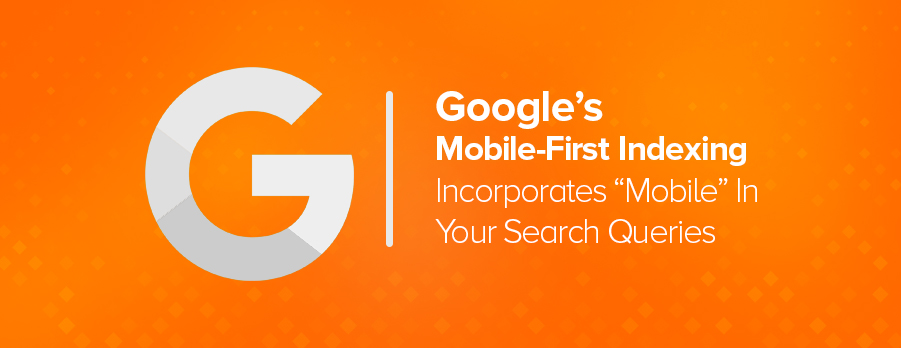
Everything You Need To Know About Google’s Mobile-First Indexing
Google’s Mobile-First Indexing was rolled out after much speculation, and it has made the website’s mobile version, the initial point for indexing. Shedding light on it, Google has stated via the Webmaster Central Blog,
“To recap, our crawling, indexing and ranking systems have typically used the desktop version of a page’s content, which may cause issues for mobile searchers when that version is vastly different from the mobile version. Mobile-first indexing means that we’ll use the mobile version of the page for indexing and ranking, to better help our–primarily mobile–users find what they’re looking for.”
You must be speculating,
Is Google’s mobile-first indexing applicable to mobile-friendly sites only? The answer is ‘No.’
If a website is desktop based, then also it will be included in the index, but its ranking might deteriorate. However, the term used is “Mobile-First”, then
Why Does It Index Desktop Websites?
As the name suggests, this form of indexing is mobile-first not mobile-only. That’s why it gives priority to mobile sites without neglecting their desktop version. A desktop website is considered as a single site which makes it equivalent to a mobile site. Also, Google comes with a single index, not a “Desktop vs Mobile Index”. Therefore, even if a website is non-mobile friendly, it is included in mobile-first indexing.
Google mentioned, “If you only have a desktop site, we’ll continue to index your desktop site just fine, even if we’re using a mobile user agent to view your site.”
Tricky one, isn’t it?
Hence, for a better understanding, here’s a brief description on –

How Does Mobile-First Indexing Work?
The working mechanism of Google’s mobile-first indexing can be described in these following steps –
- First, Google will crawl the mobile version of your website.
- If a mobile version is found, it will determine your website’s ranking.
- In case, there is no mobile version, it will crawl your desktop version and then determine the ranking.
Now that it’s clear why and how Google incorporates both mobile-friendly and non-mobile friendly sites in mobile-first indexing, let’s focus on –
What Is The Effect Of Mobile-First Indexing In SEO?
Do you have a mobile-friendly website whose crawlbot traffic is monitored regularly? Have you noticed, you gain more traffic from Smartphone Googlebot? This will not be possible if the website is devoid of a mobile version.
Wondering, why a desktop website gets lesser traffic than a mobile site?
People are now more engaged with performing searches on their mobiles than on a desktop. This has compelled Google to shift their ranking system from desktop-first indexing to mobile-first indexing. With this system, your desktop websites will still be indexed, but it will not get “mobile-friendly website like ranking boost”. This is how Google’s mobile-first indexing affects SEO.
How To Prepare For A Better Mobile-First Indexing?
If you want to get ahead of your competitors by reaching out to more users, you need to know the best practices of Google’s mobile-first indexing. Here are some points that will guide you –
- The content present in your desktop version must be present in the mobile version of your website too. Structured data and metadata that are considered as vital indexing factors must be there in both versions.
- You must use a responsive page design, otherwise, the users will see the desktop version of your website on their mobile which is not good for user experience.
- Your site must perform fast if you want to rank high in mobile-first indexing searches. Statistics have shown, the top 10 sites on Google takes less than 1.10 seconds to load.
- You should add or verify both mobile and desktop version of your site in Google Search Console and avoid being missed. Also, optimizing your media display is important.
Closing Thoughts
Google’s team said, “We’ve started migrating sites that follow the best practices for mobile-first indexing.”
So, you need to make sure that your site is optimized for mobile-first indexing. If you delay, then you might see your traffic drop over the coming years. Don’t let that happen to you!
Start updating now and have the edge on those who have been waiting.
 Blog
Blog